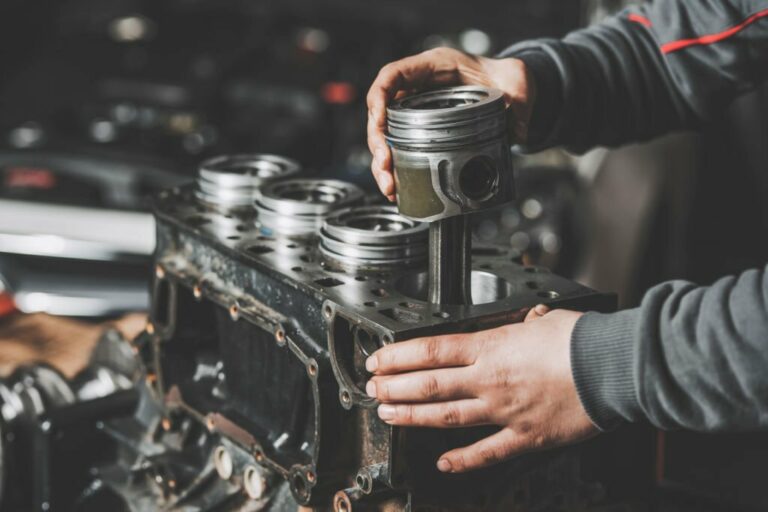Pistons are the workhorses of your engine, tirelessly converting fuel into the mechanical power that propels your vehicle. However, like any mechanical component, pistons can fail, leading to reduced engine performance or even total engine failure. This blog post will explore common piston failure modes and provide advice on how to prevent them through proper design, material selection, and maintenance.
Common Piston Failure Modes
Piston failures can occur for a variety of reasons, but some of the most common include:
1. Scuffing and Seizure: This occurs when there’s insufficient lubrication between the piston and the cylinder wall, leading to excessive friction and heat. This can cause the piston to warp or seize up, resulting in engine failure.
2. Cracking: Pistons can crack due to excessive heat or pressure, often as a result of detonation or pre-ignition. Cracks can lead to a loss of compression and power, increased oil consumption, and engine damage.
3. Ring Sticking: Carbon deposits can cause the piston rings to stick in their grooves, preventing them from sealing properly. This can lead to blow-by, increased oil consumption, and reduced engine performance.
Proper Design and Material Selection
Preventing piston failure starts with the right design and material selection.
Design: The design of the piston should be suitable for its intended application. For example, a piston designed for a high-performance engine may not be suitable for a daily driver. Factors such as the piston’s shape, size, ring placement, and skirt design all play a role in its performance and durability.
Material: The material used to make the piston also plays a significant role in its ability to withstand the stresses of combustion. Aluminum is a popular choice due to its light weight and good heat conductivity, but it can expand under high temperatures, leading to potential damage. Steel pistons are stronger and can withstand higher temperatures, but they are also heavier, which can impact engine performance.
Regular Maintenance
Preventing piston failures also involves regular maintenance. Here are some tips:
1. Regular Oil Changes: Regular oil changes ensure that the pistons are always adequately lubricated, reducing friction and preventing scuffing and seizure.
2. Using Quality Fuel: Low-quality fuel can lead to carbon buildup on the piston heads, which can cause ring sticking. Using high-quality fuel can help prevent this.
3. Cooling System Maintenance: Keeping your engine cool can prevent cracking due to excessive heat. Regularly check your vehicle’s cooling system to ensure it’s working effectively.
4. Regular Engine Check-ups: Regular engine check-ups can help detect potential issues early on, before they lead to piston failure.
Conclusion
Piston failures can have serious consequences for your engine, but they can be prevented with the right design, material selection, and maintenance. By understanding the common causes of piston failure and how to prevent them, you can ensure that your pistons—and your engine—have a long and productive life.

A top ranking student throughout, Akshay joined the family business right after graduation in 2006. After working for over 10 years in Agra Engineering Co, he decided to start his own company. Now as a partner in this new company he looks after business development and vendor management. A keen fitness enthusiast he tries new forms of exercise – crossfit, calisthenics, pilates, yoga and swimming. He’s an avid golfer as well – one of his many hobbies.







